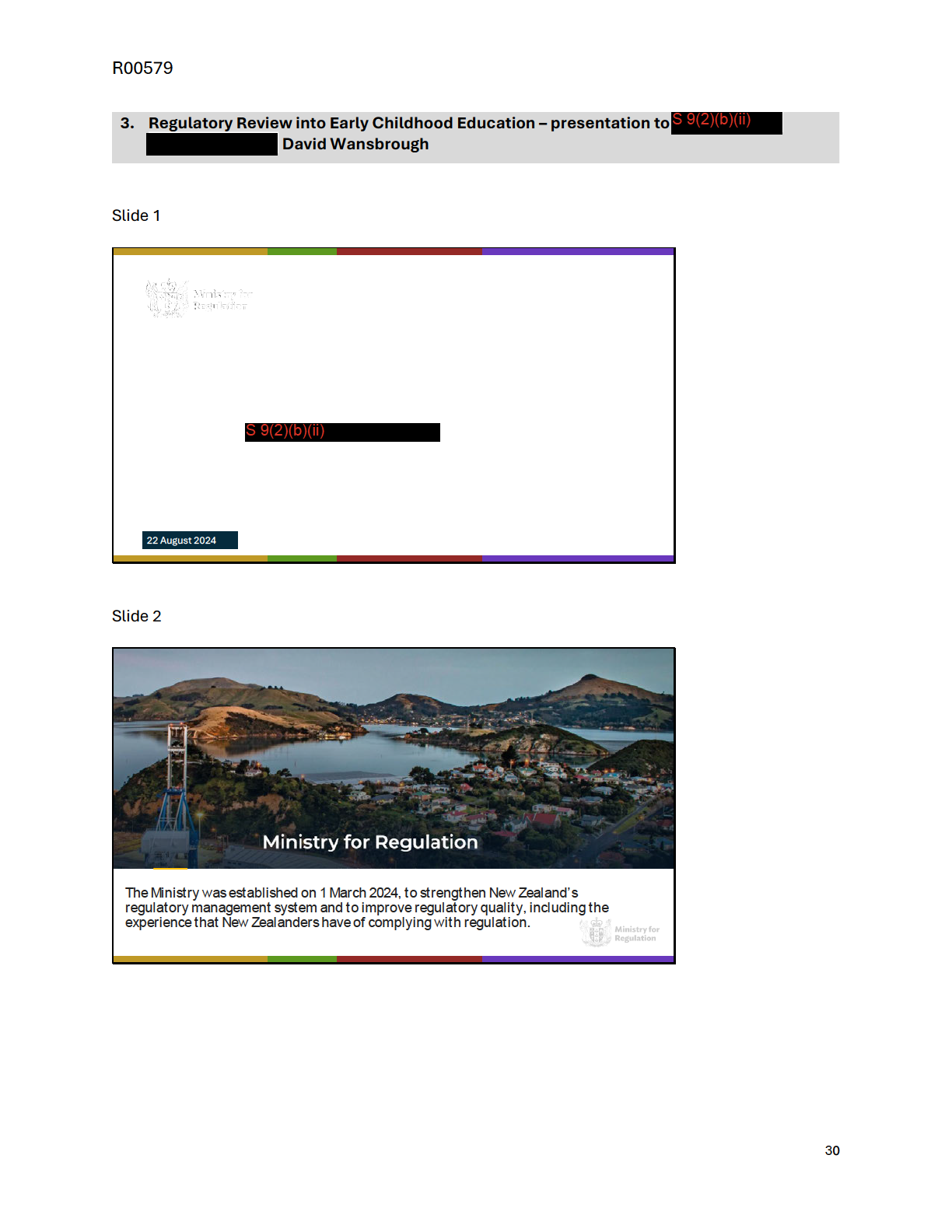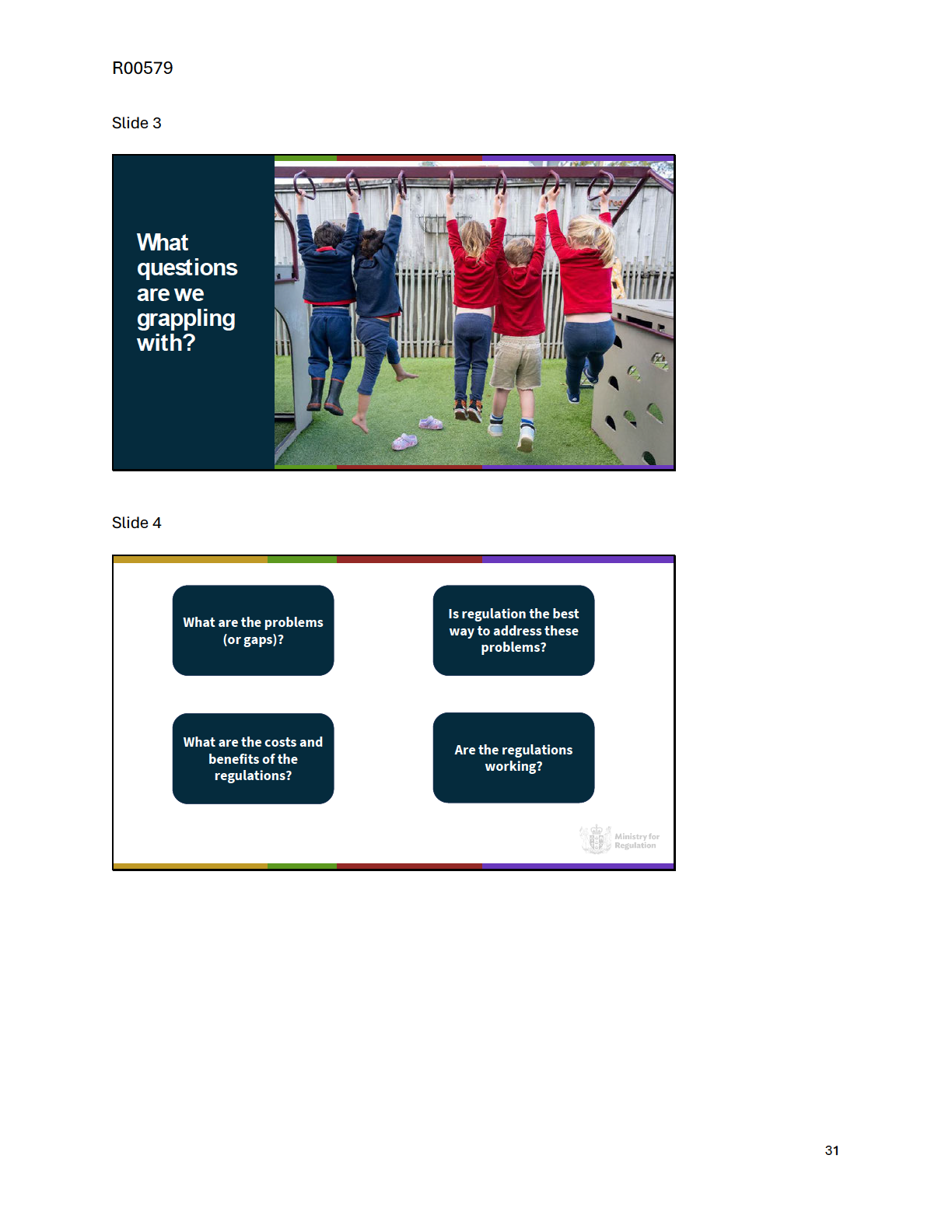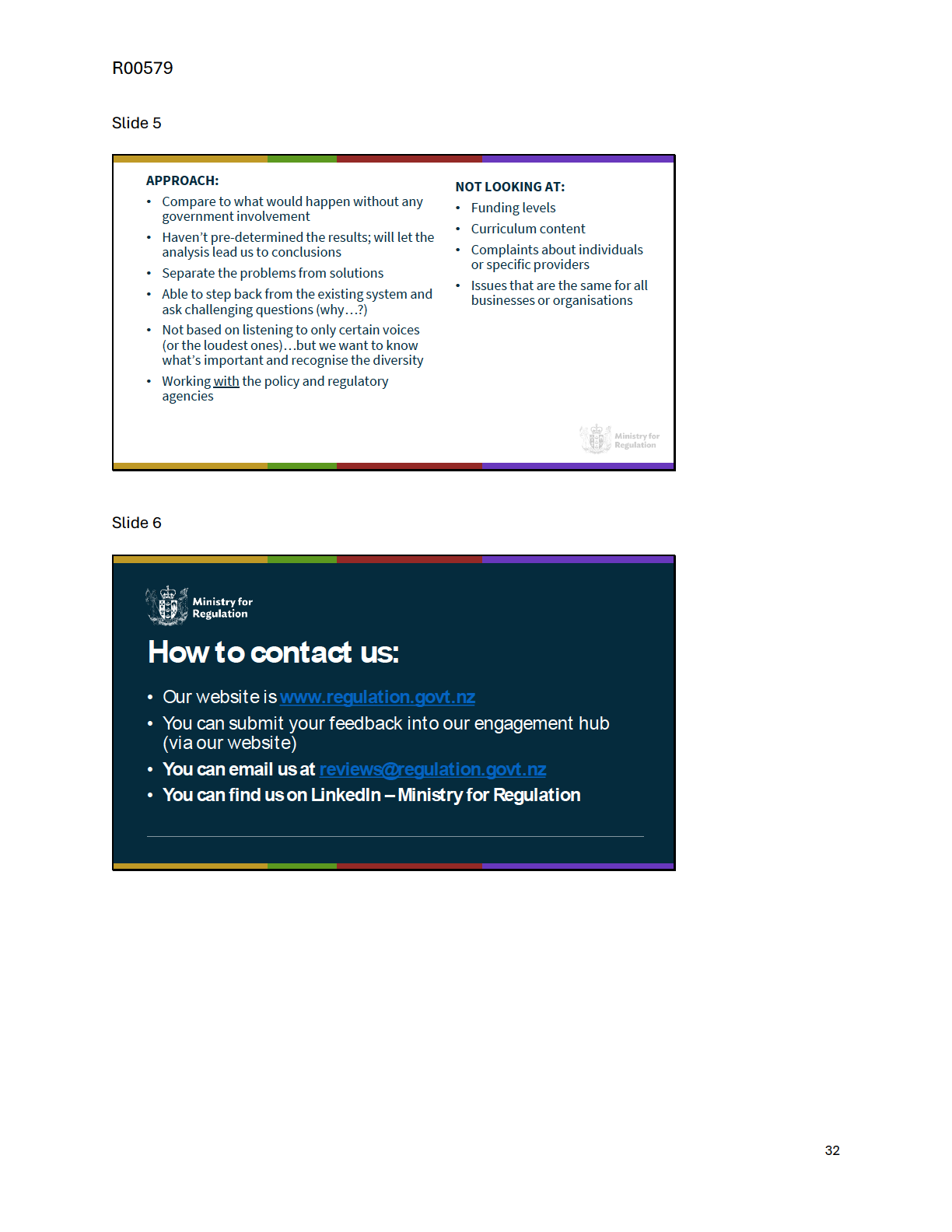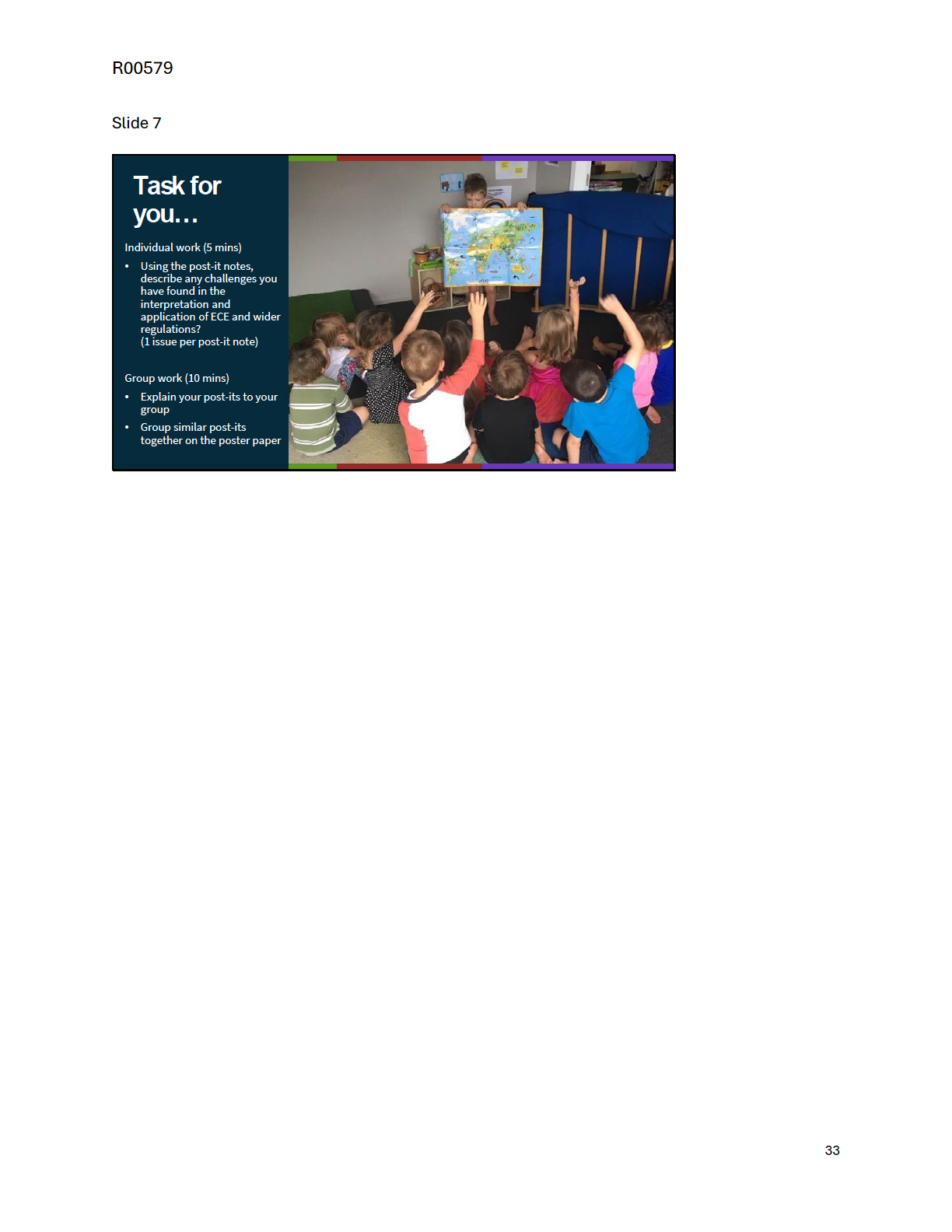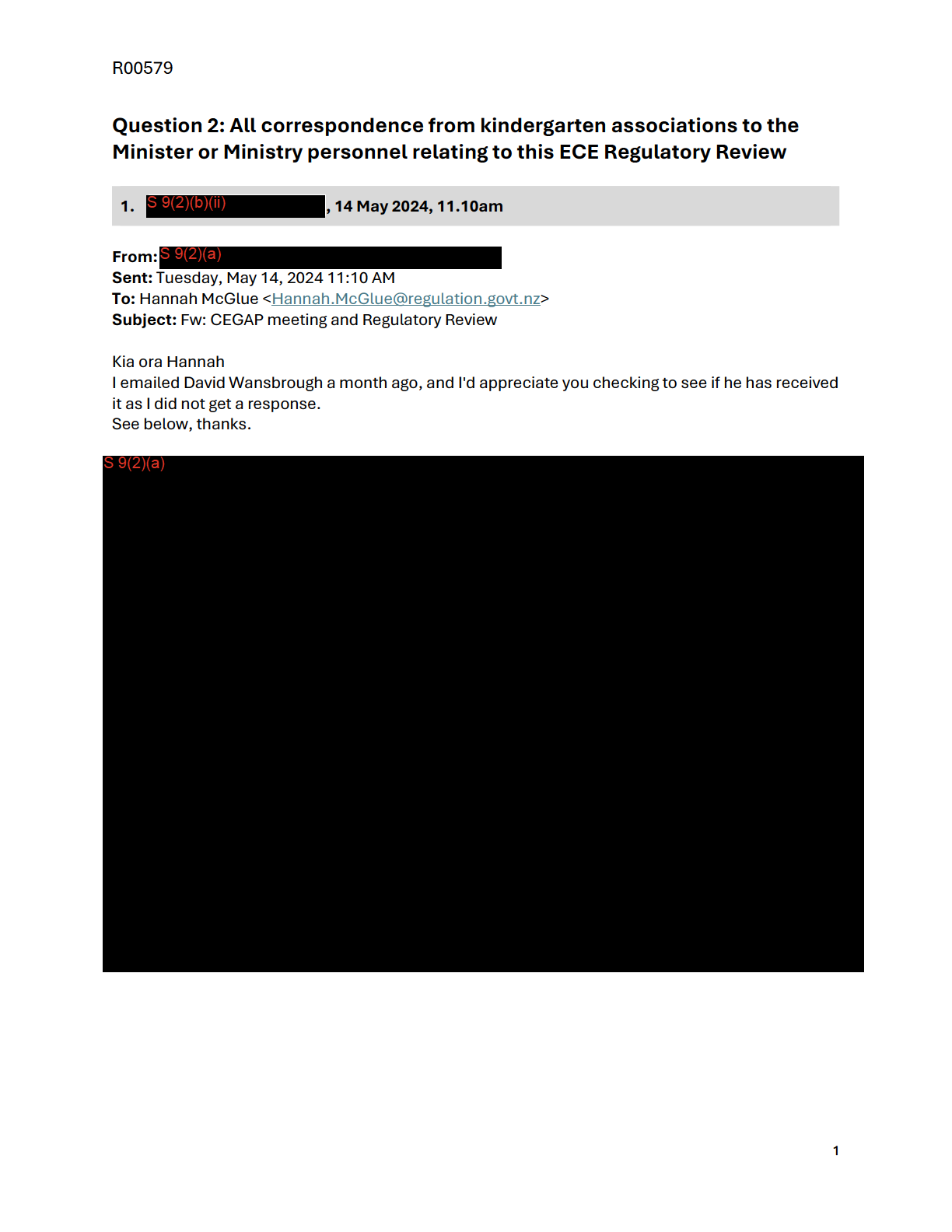
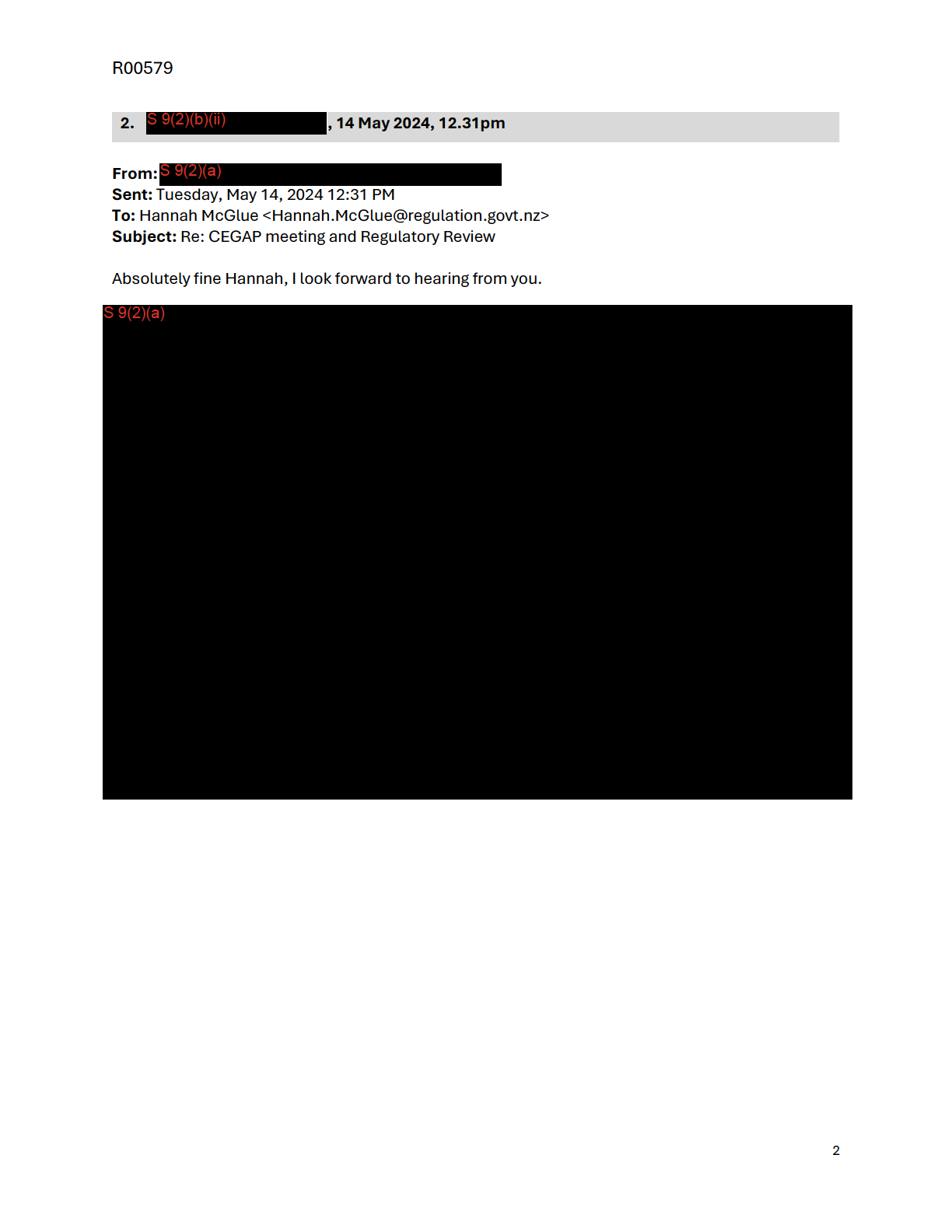
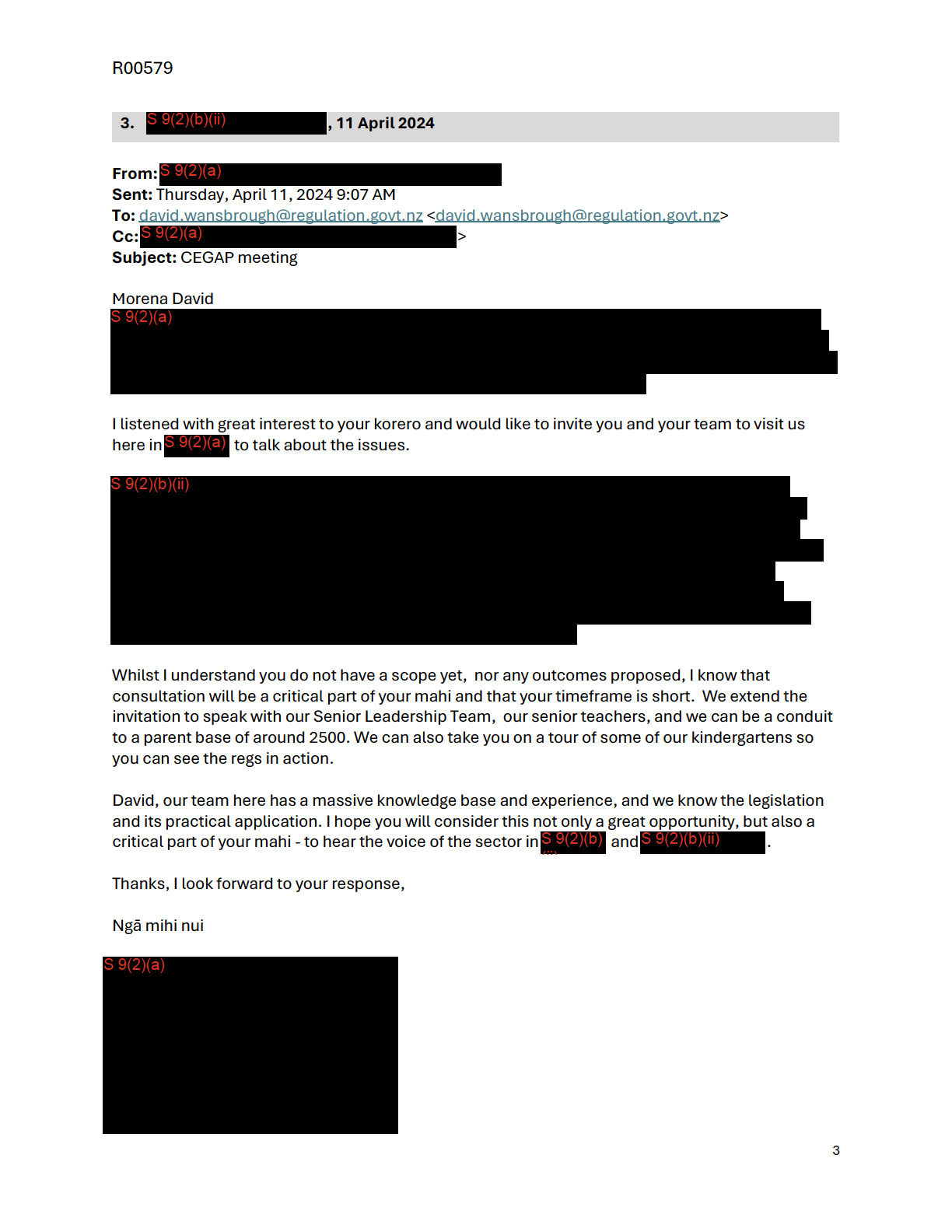
R00579
S 9(2)(a)
..........................................................................................................................................
Confidentiality notice: This email may be confidential or legally privileged. If you have received it by
mistake, please tell the sender immediately by reply, remove this email and the reply from your
system, and don’t act on it in any other way. Ngā mihi.
4
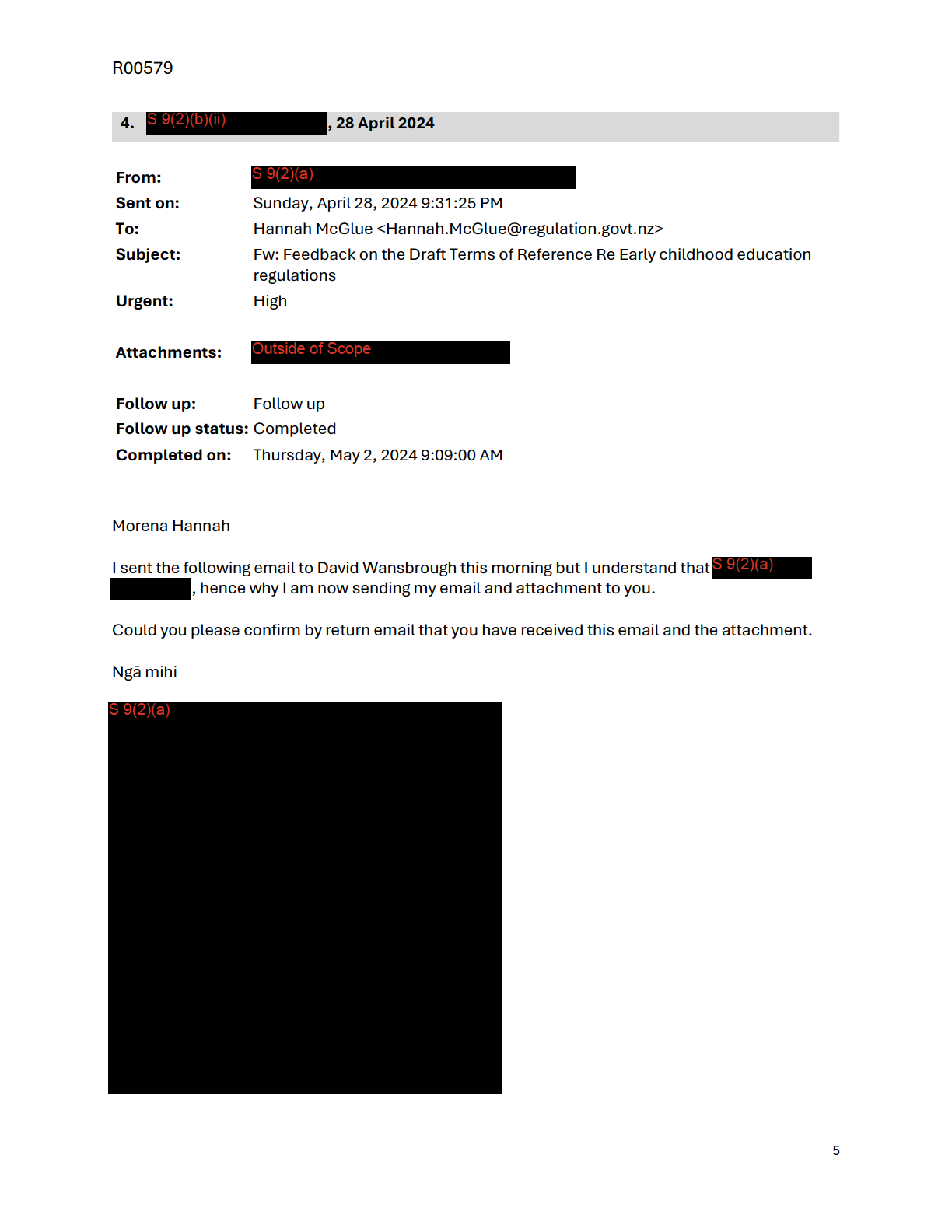
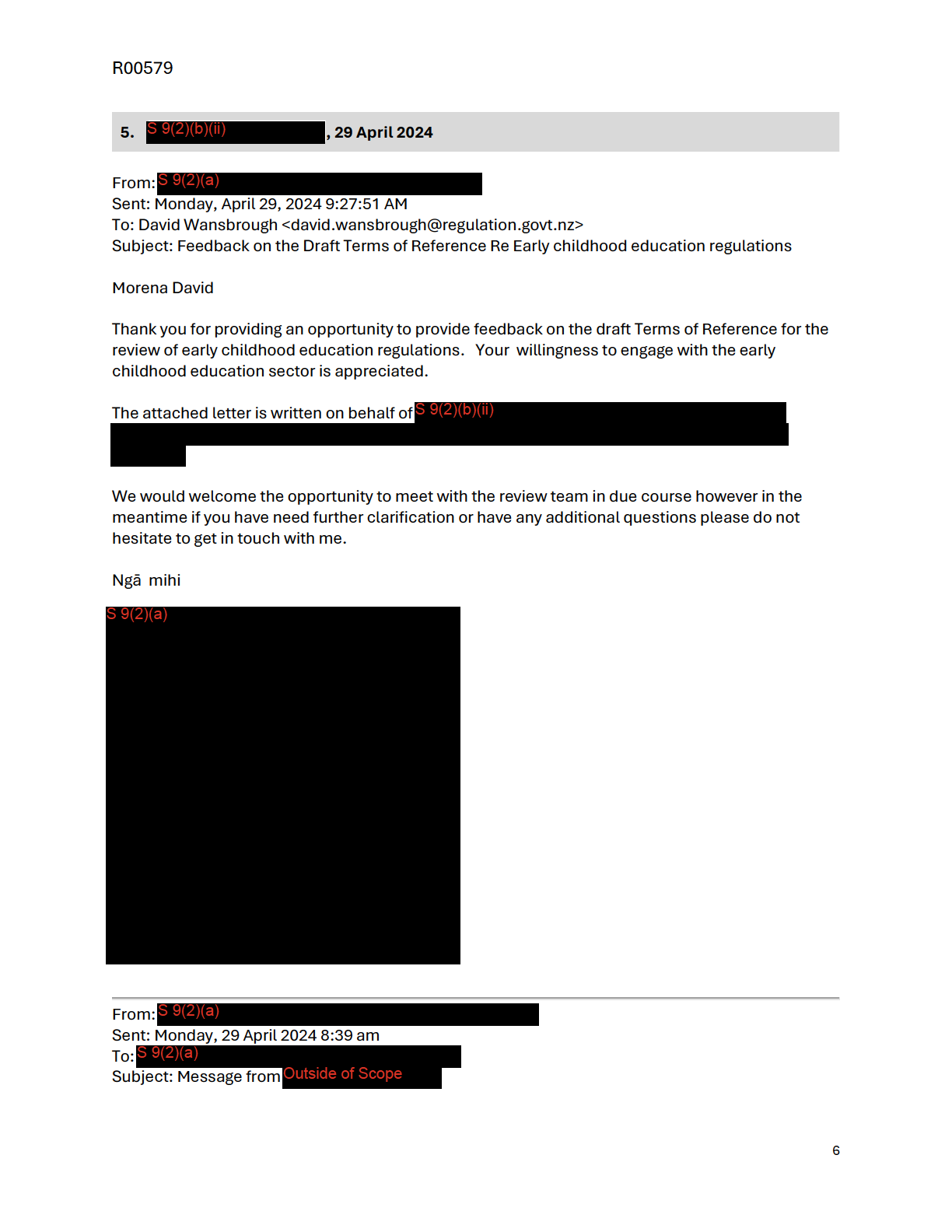
R00579
This E-mail was sent from "Outside of Scope
Scan Date: 04.29.2024 08:39:23 (+1200)
Queries to: S 9(2)(a)
7
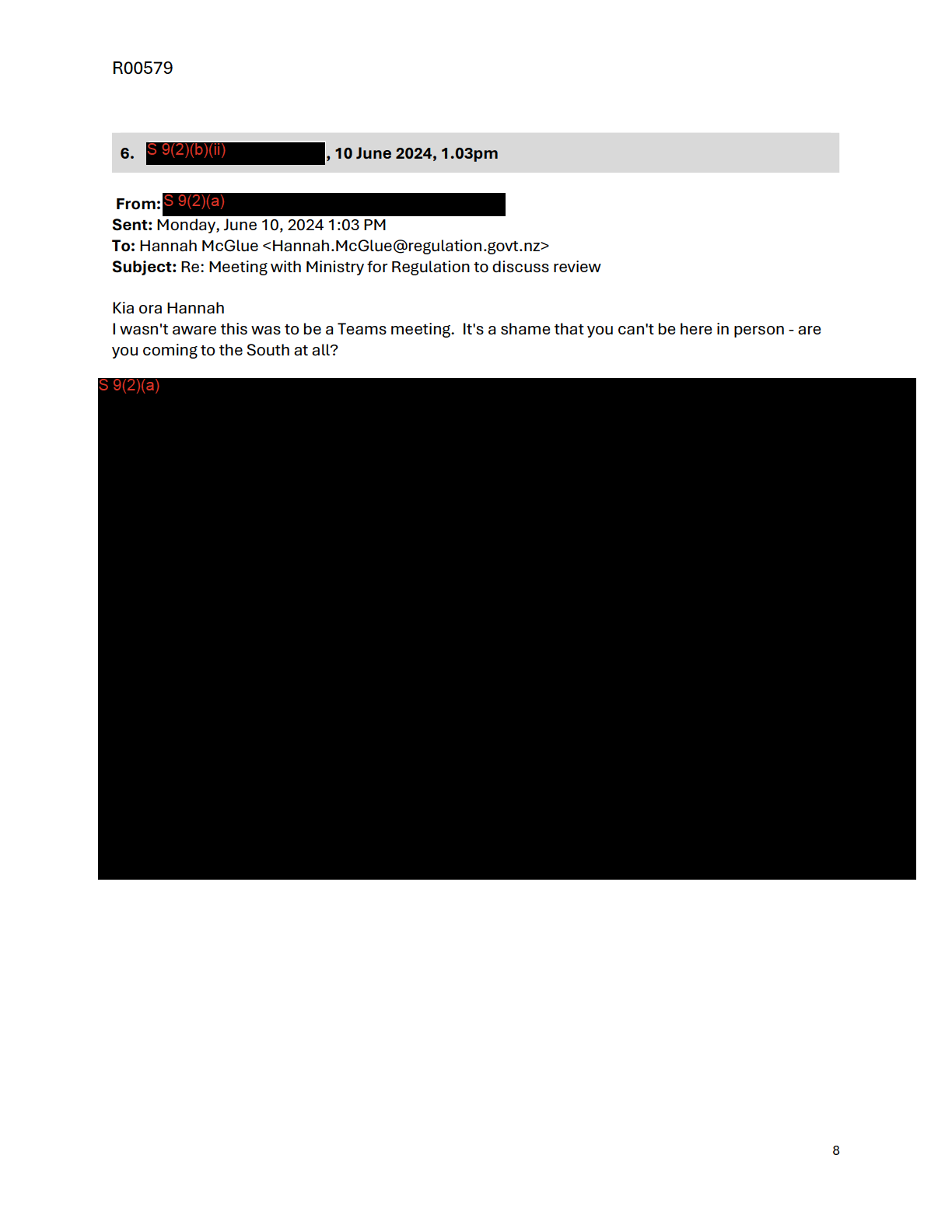
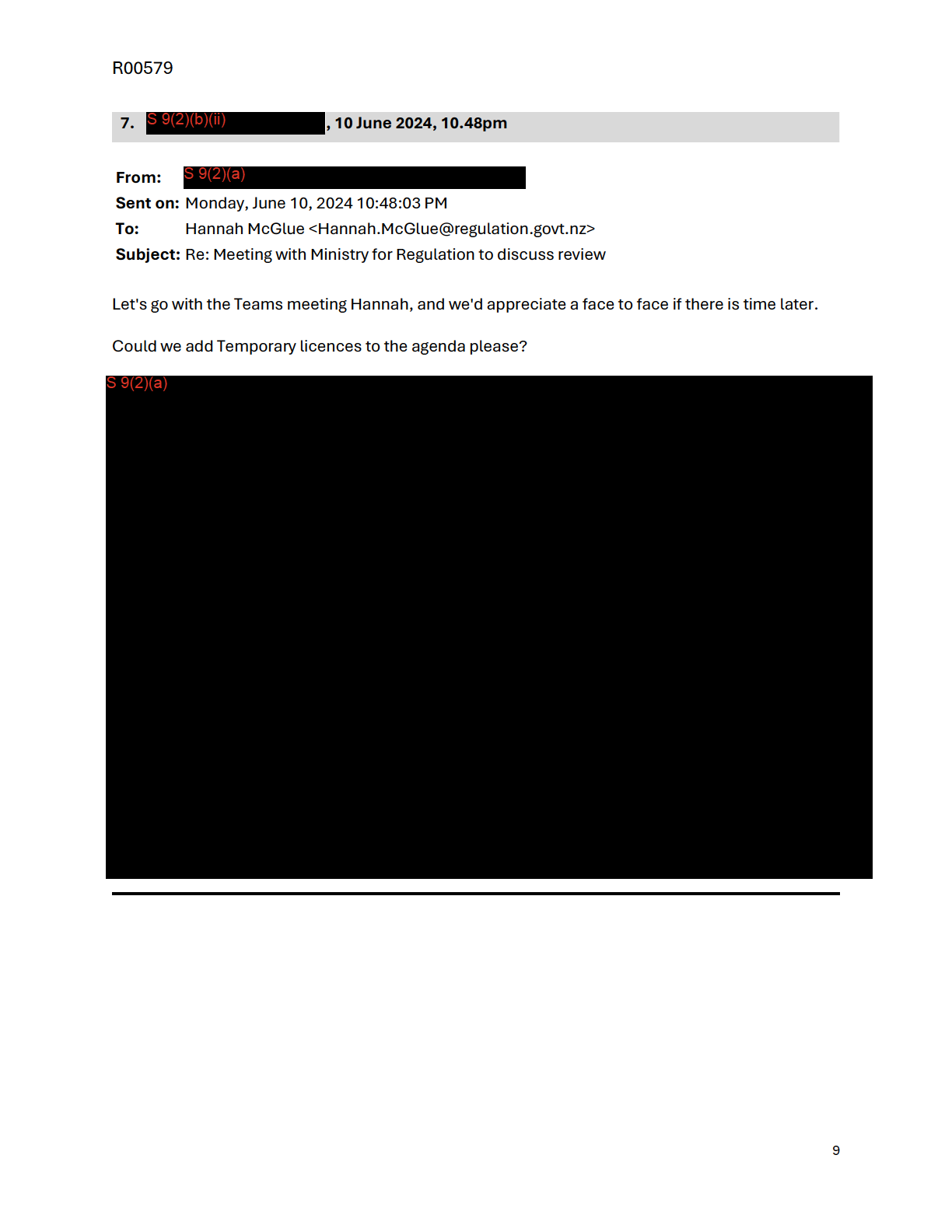
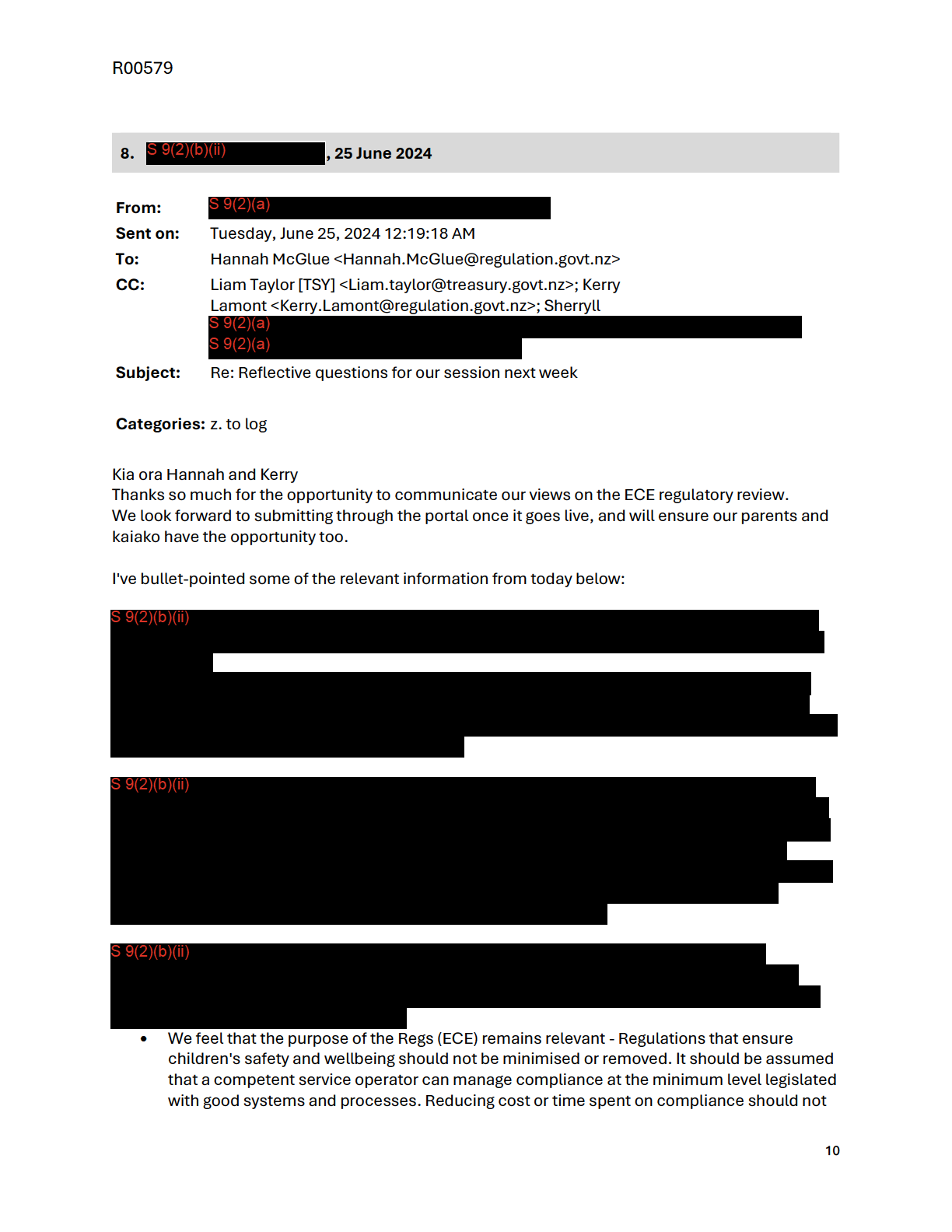
R00579
drive change when that change directly affects children's wel being and the quality of
provision in ECE services. The regulations give assurance to our parents and whānau of a
minimum standard of care and education - what does lowering the standards tell them
about how much we value their children?
• In the future we want to see a fully qualified workforce to support quality provision, and
equity of access to safe, quality ECE for all children. We want to see the ECE sector valued
by the government, regardless of the politics, and respected by the education sector. We
want certainty and consistency, rather than being a political football. True partnership and
collaboration with the MoE, and better communication is the key.
• The issues in the main reside with unclear guidance, and inconsistent interpretation and
application across the Ministry of Education, and across other agencies. i.e. Te Whatu Ora
( re acoustic testing), FENZ (desk-based assessment of evacuation schemes vs practical
application), Local Councils (understanding end user), BWOF inspectors (flexibility to make
a reasonable assessment based on safety and risk levels). The legislation (ECE and other)
often has competing objectives, and from our perspective the safety of children trumps all
others. For example, this means installation of high door handles that are out of reach of
children - and (some) disabled persons. In a new build or renovation the handles are
installed between the council Code Compliance inspection and the Ministry license
inspection. Keep in mind that many ECE buildings do not have a BWOF and are never
checked for issues such as this. But where there is a BWOF, new facilities are not passing
annual inspection because they are asking for the removal of the high handles. This means
a breach of regs and potential loss of license. This is not a new issue, but no-one will
address it and make a call.
• The guidance under the licensing criteria provided by the Ministry of Education needs to be
clearer, and any changes communicated widely so the impact and potential cost to
providers is understood.
• We would like the timeframe for temporary relocation licenses to be extended to up to 12
months, recognising the actual timeframe for a major renovation.
• We would like the minimum outdoor space of 5m per child increased to 7m (in line with
overseas provision). Indoor space will need to be reviewed given the current 2:1
outside/inside size ratio.
• We would like to see regulatory standards set for the exclusion of children from ECE
settings, which happens far too often with no real justification.
• There needs to be alignment with the compulsory sector around the regs and rules for
restraint of children - we need to keep tamariki and staff safe in these situations. It is
regulated for schools.
• The service provider should be able to be named as one person across multiple Education
regions where that person can show that they are actively and adequately covering this
role.
Thanks again, and please let us know if we can host you when you visit.
11
R00579
Ngā mihi nui
S 9(2)(a)
12
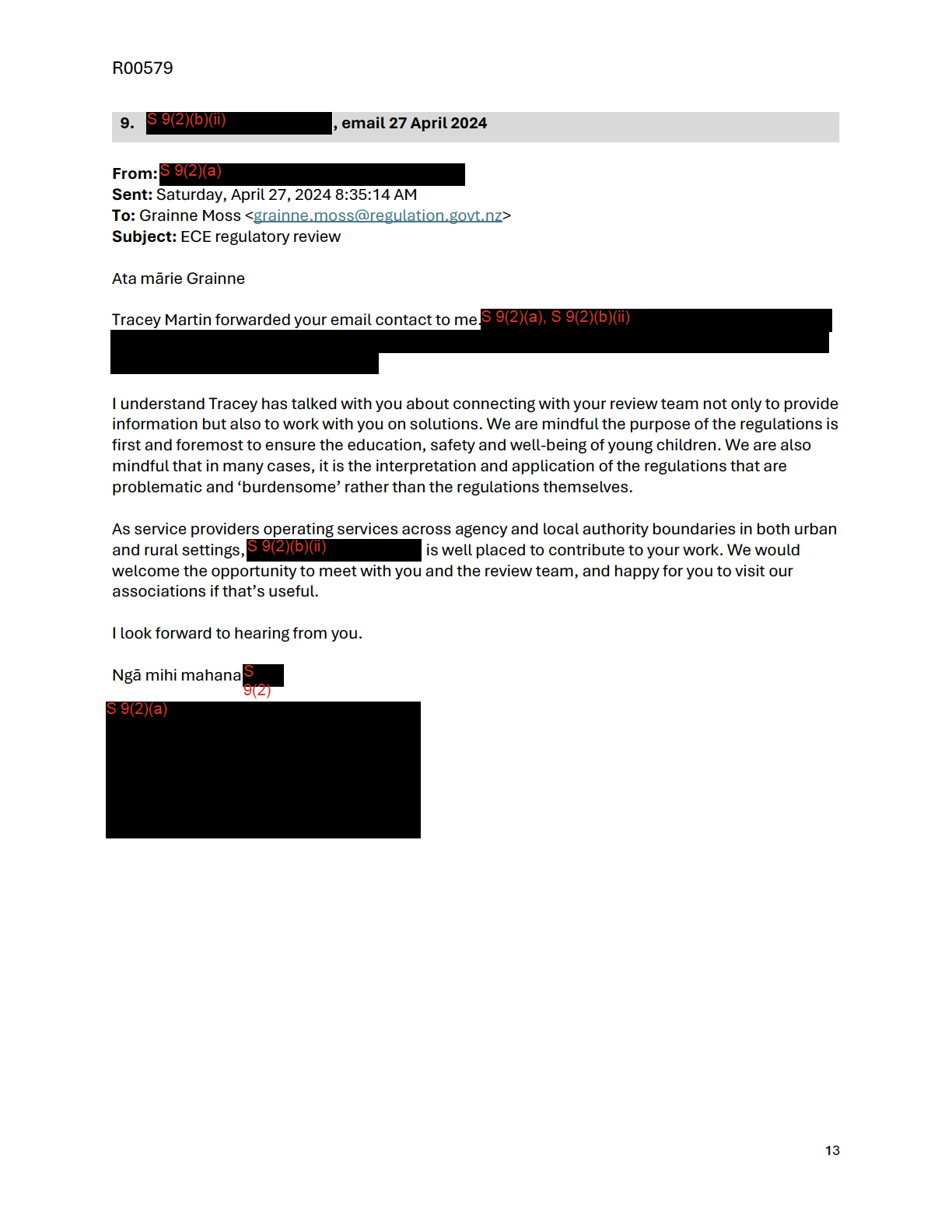
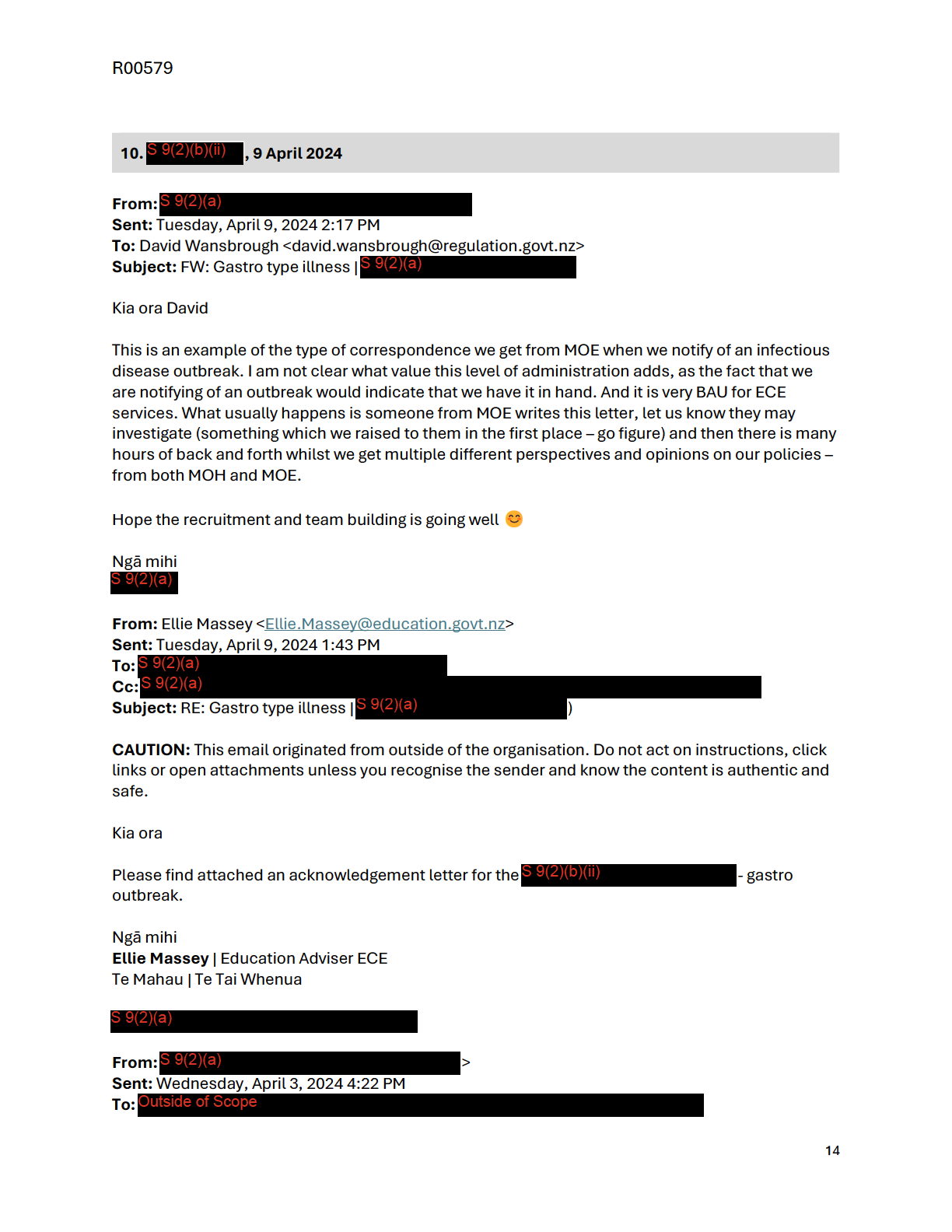
R00579
Cc: S 9(2)(a)
Subject: Gastro type illness | S 9(2)(a)
Kia ora
Please note that we have advised the Ministry of Health of a gastro type illness outbreak at
S 9(2)(a)
.
Outbreak number is Outside of Scope
Ngā mihi
S 9(2)(a)
This e-mail and any attachments may contain confidential and privileged information. If you are
not the intended recipient please notify the sender immediately by return email, delete this email
and destroy any copies. Any dissemination or use of this information by a person other than the
intended recipients is unauthorised and may be illegal.
DISCLAIMER:
This email and any attachments may contain information that is confidential and subject to legal
privilege. If you are not the intended recipient, any use, dissemination, distribution or duplication of
this email and attachments is prohibited. If you have received this email in error please notify the
author immediately and erase all copies of the email and attachments. The Ministry of Education
accepts no responsibility for changes made to this message or attachments after transmission
from the Ministry.
15
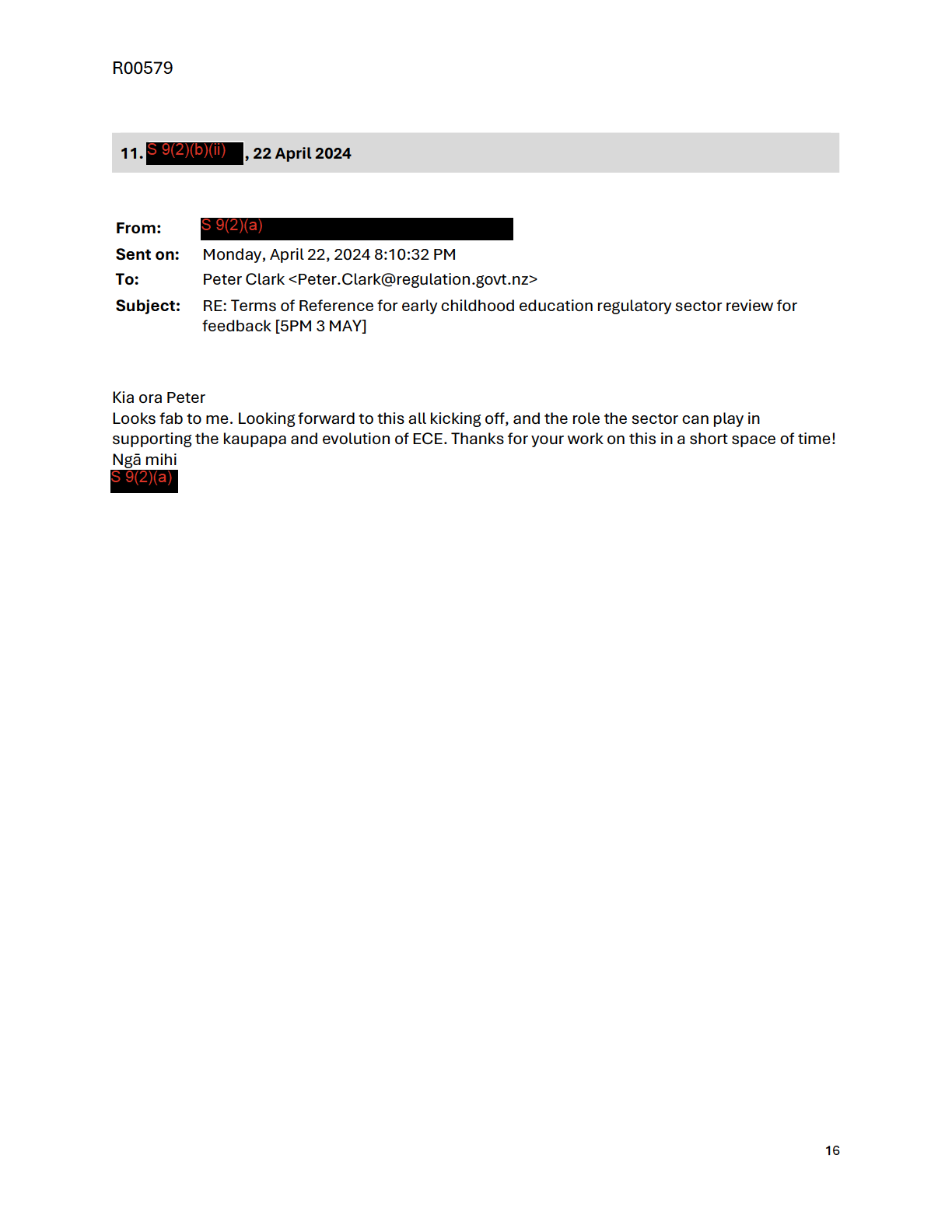
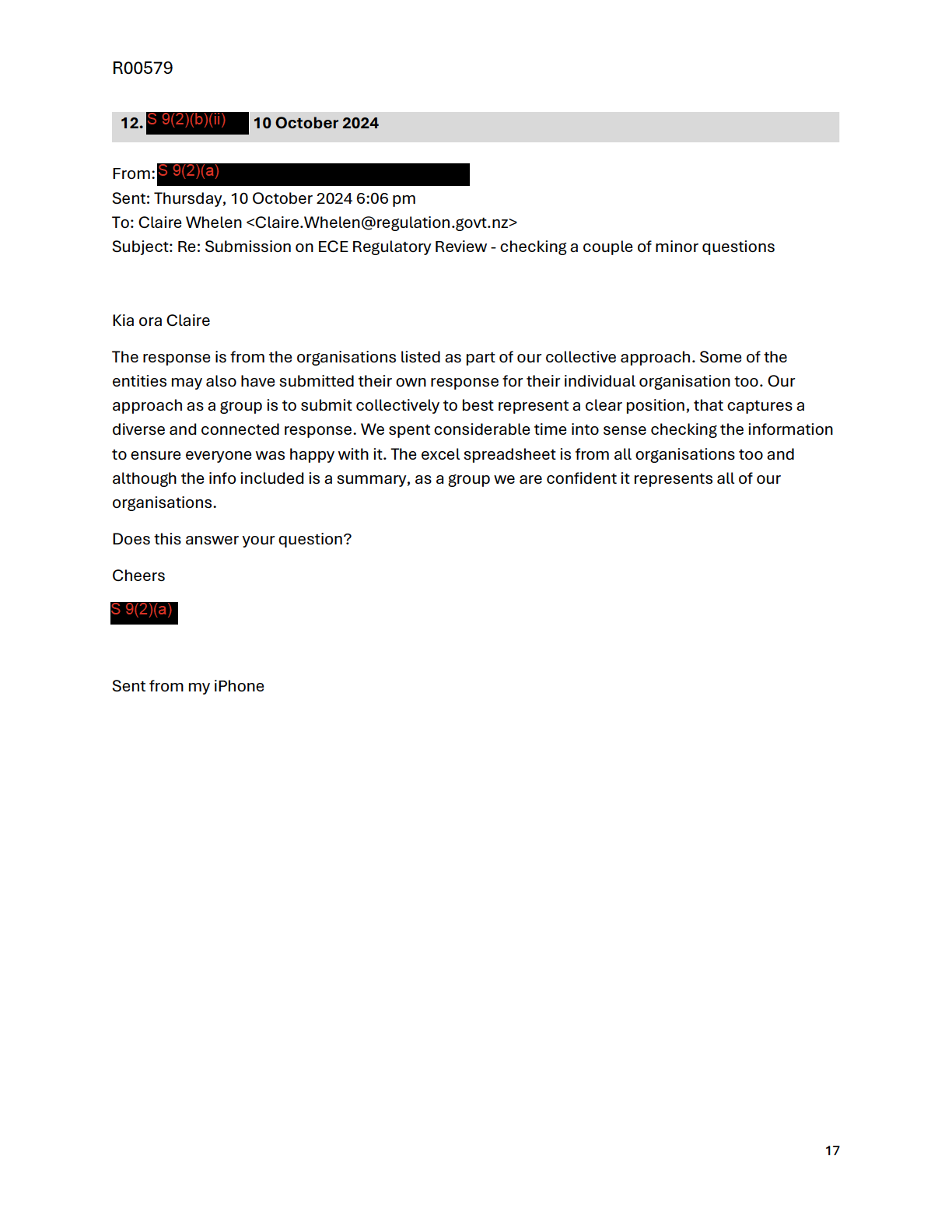
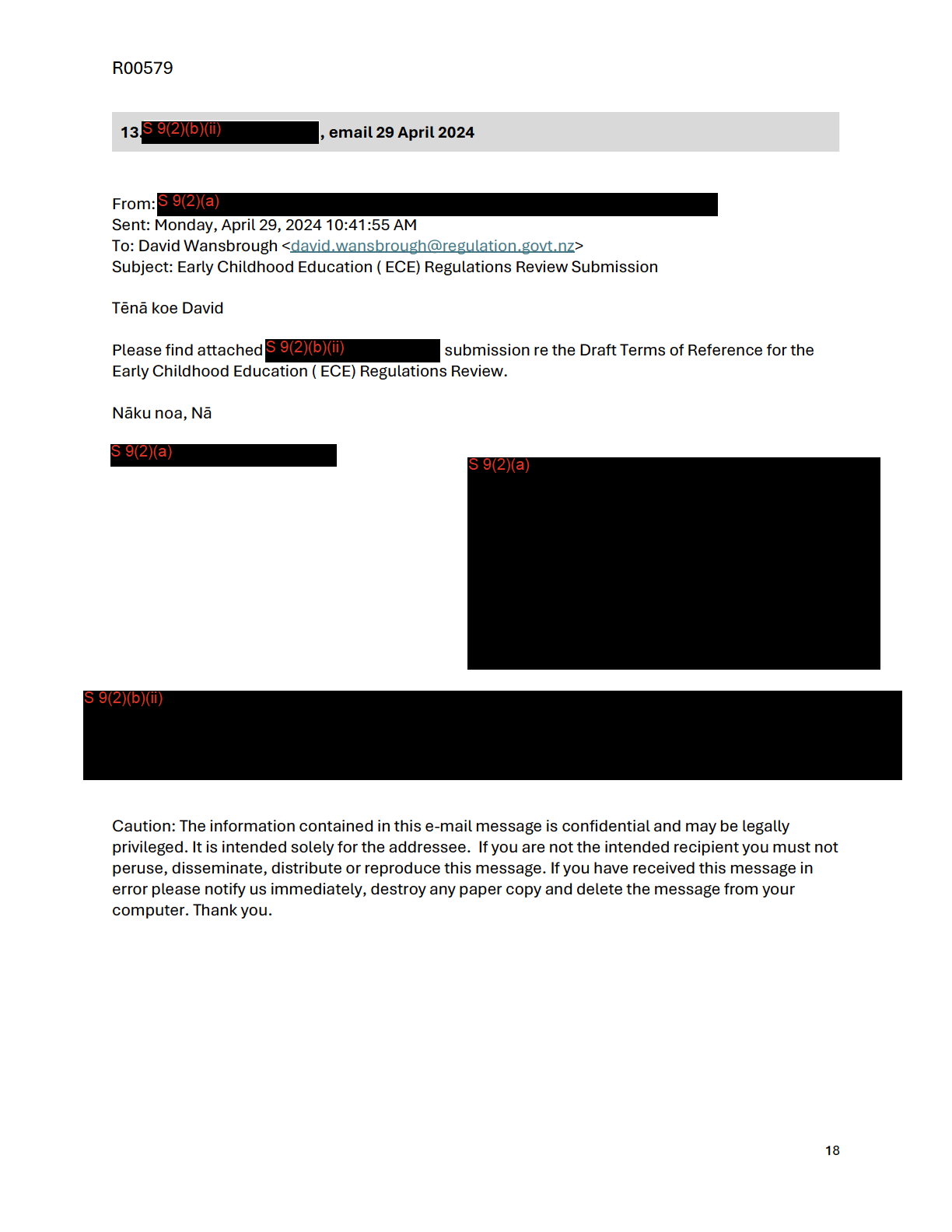
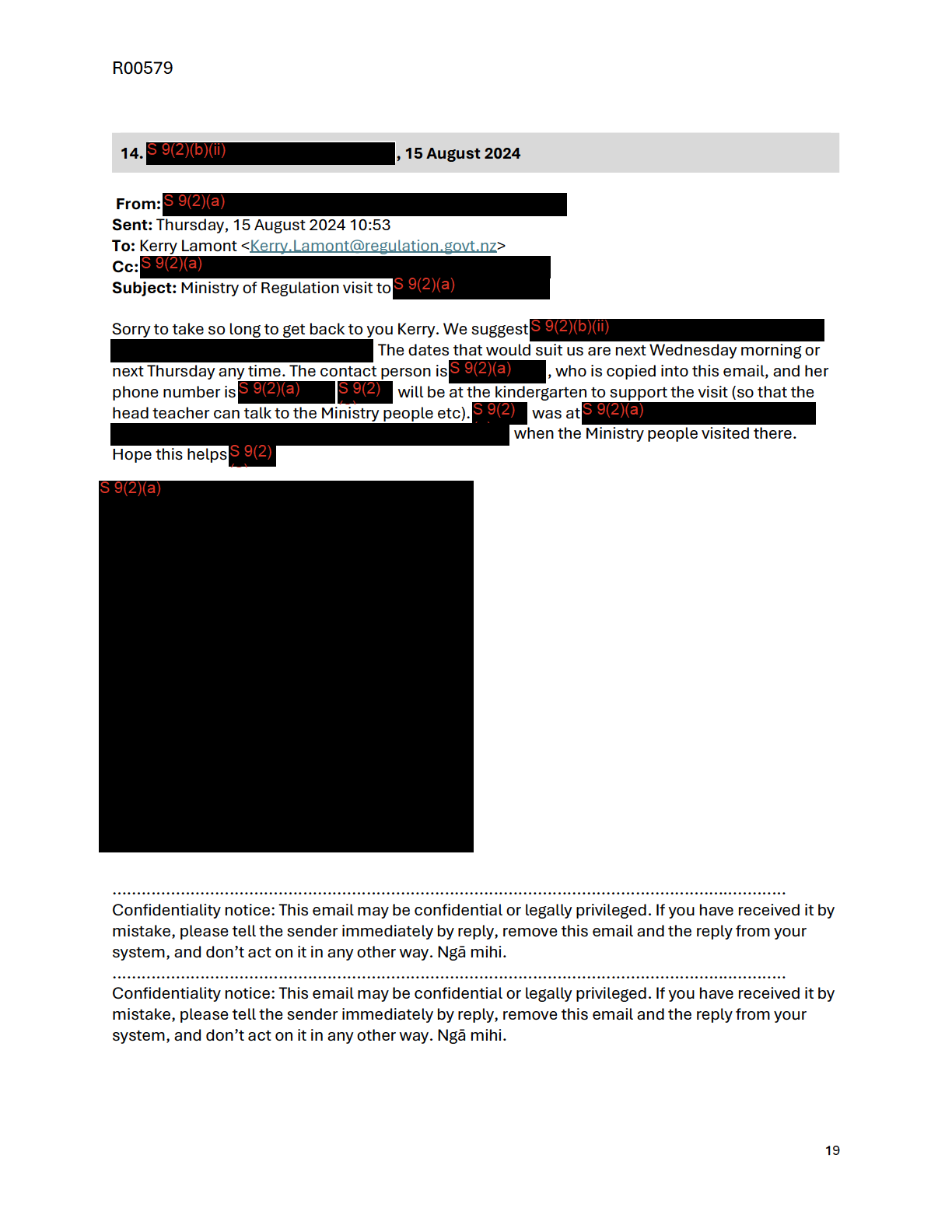
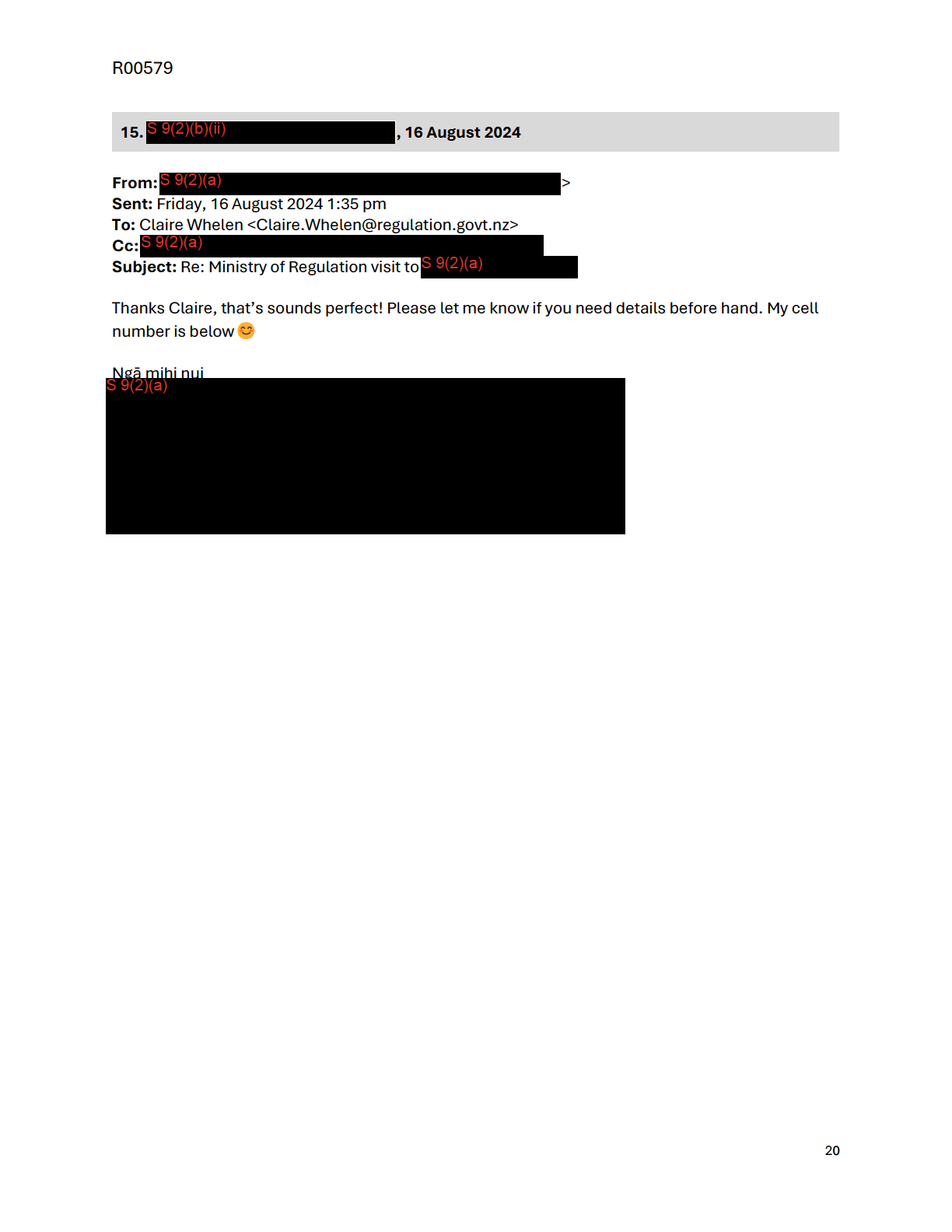
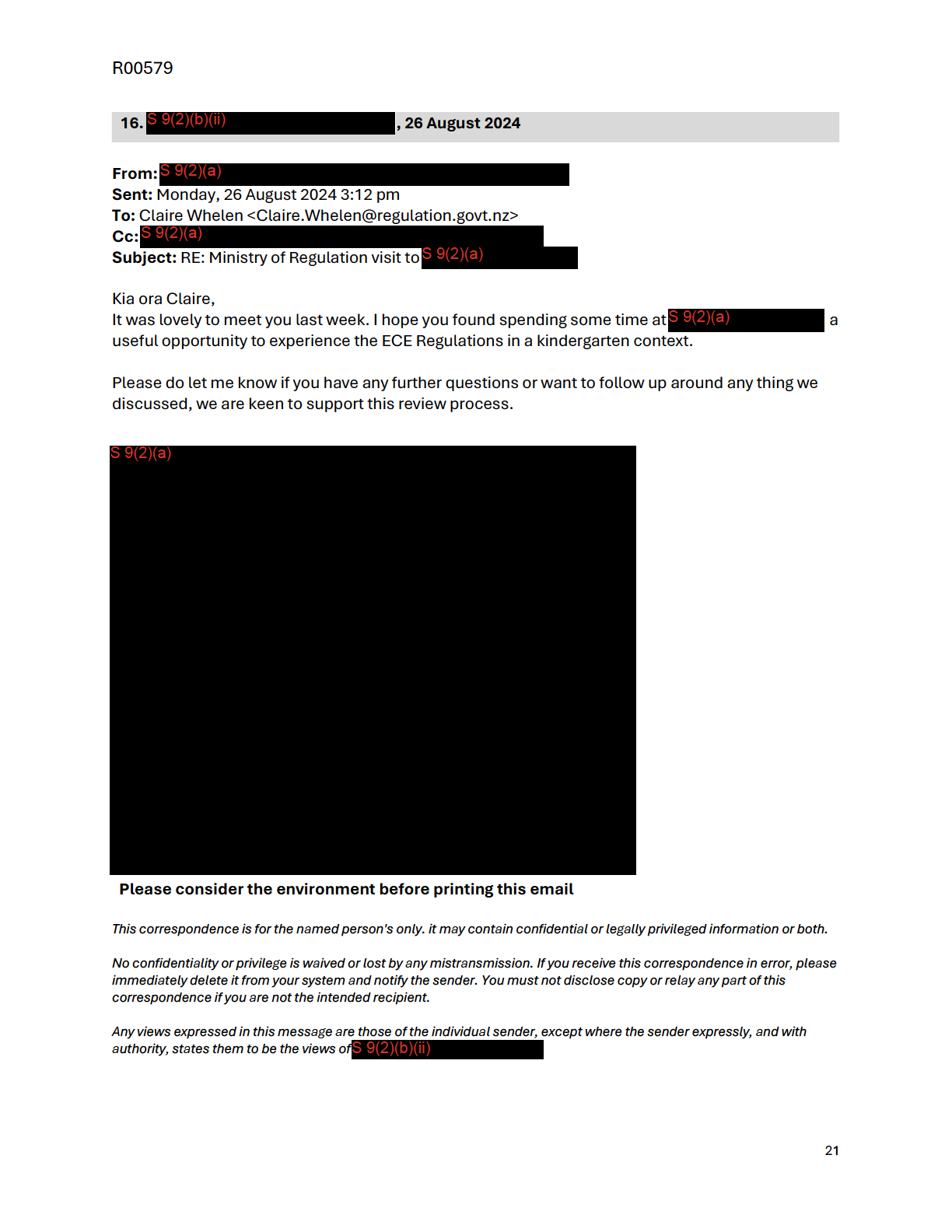
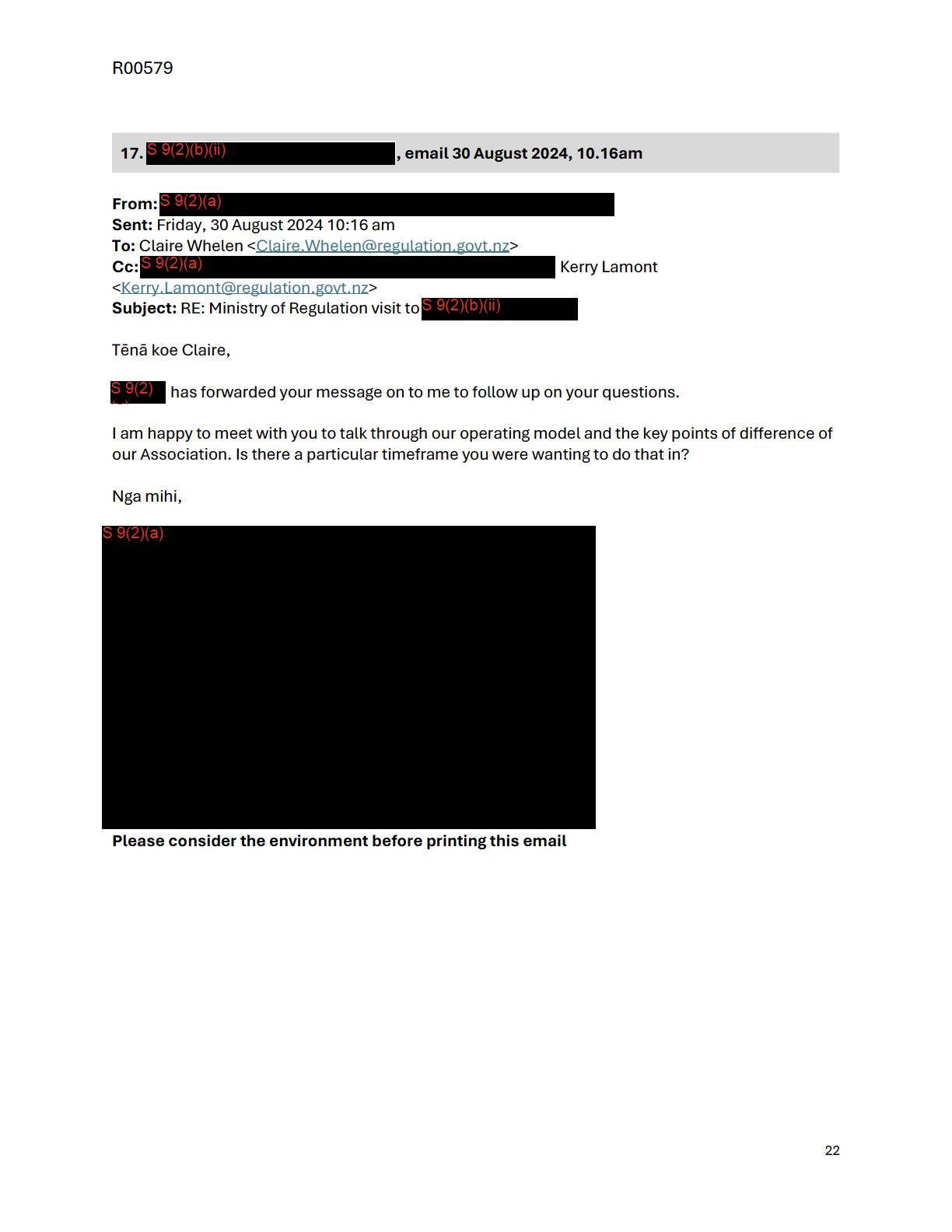
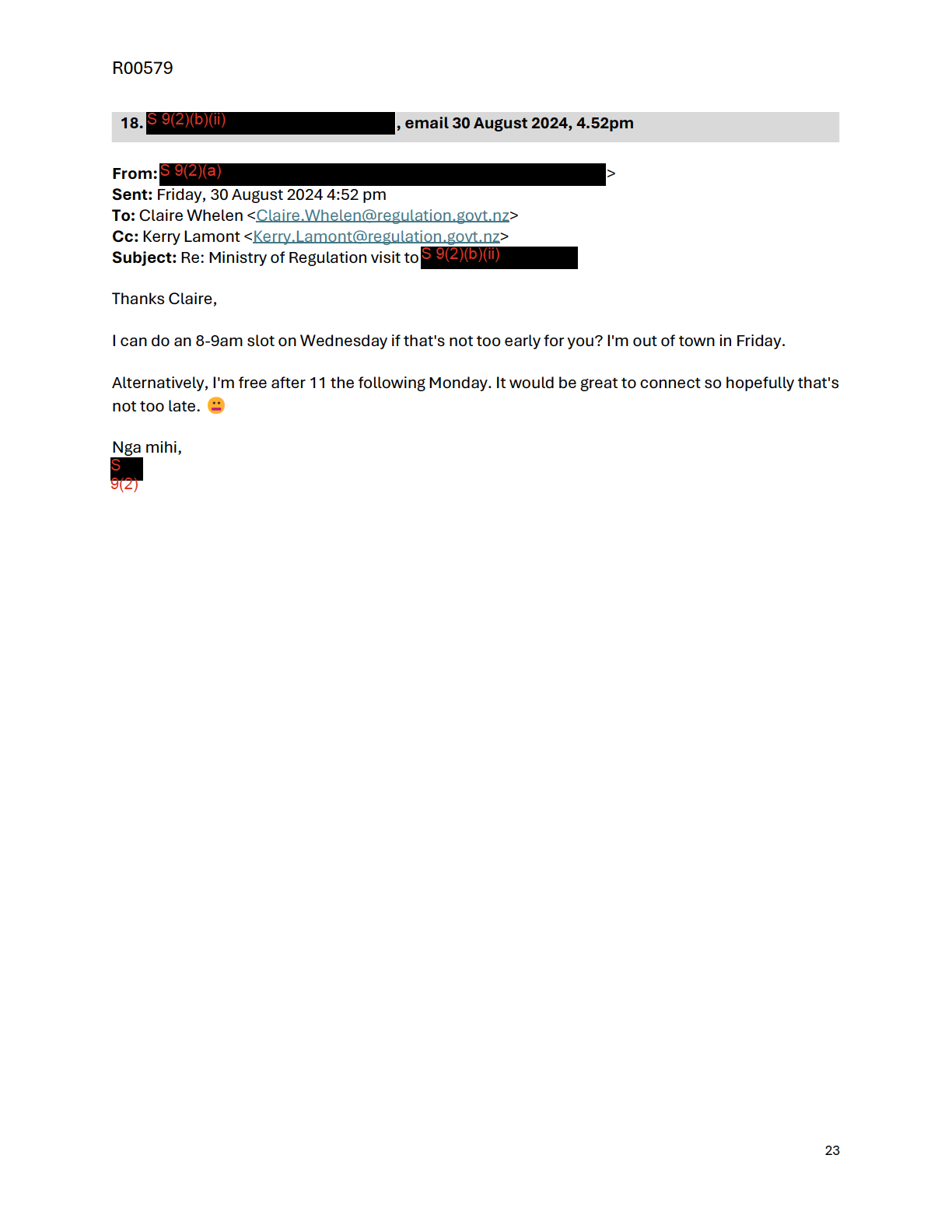
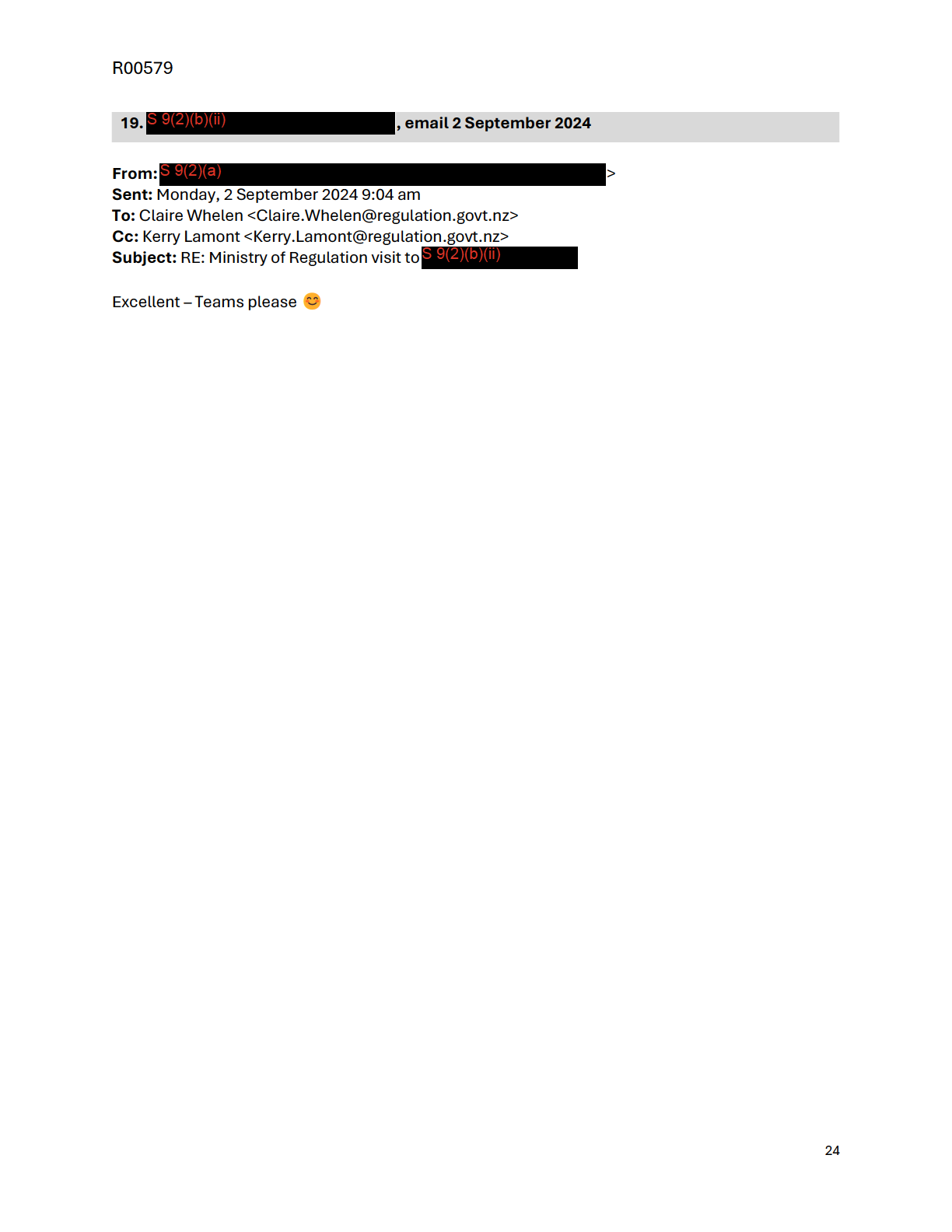
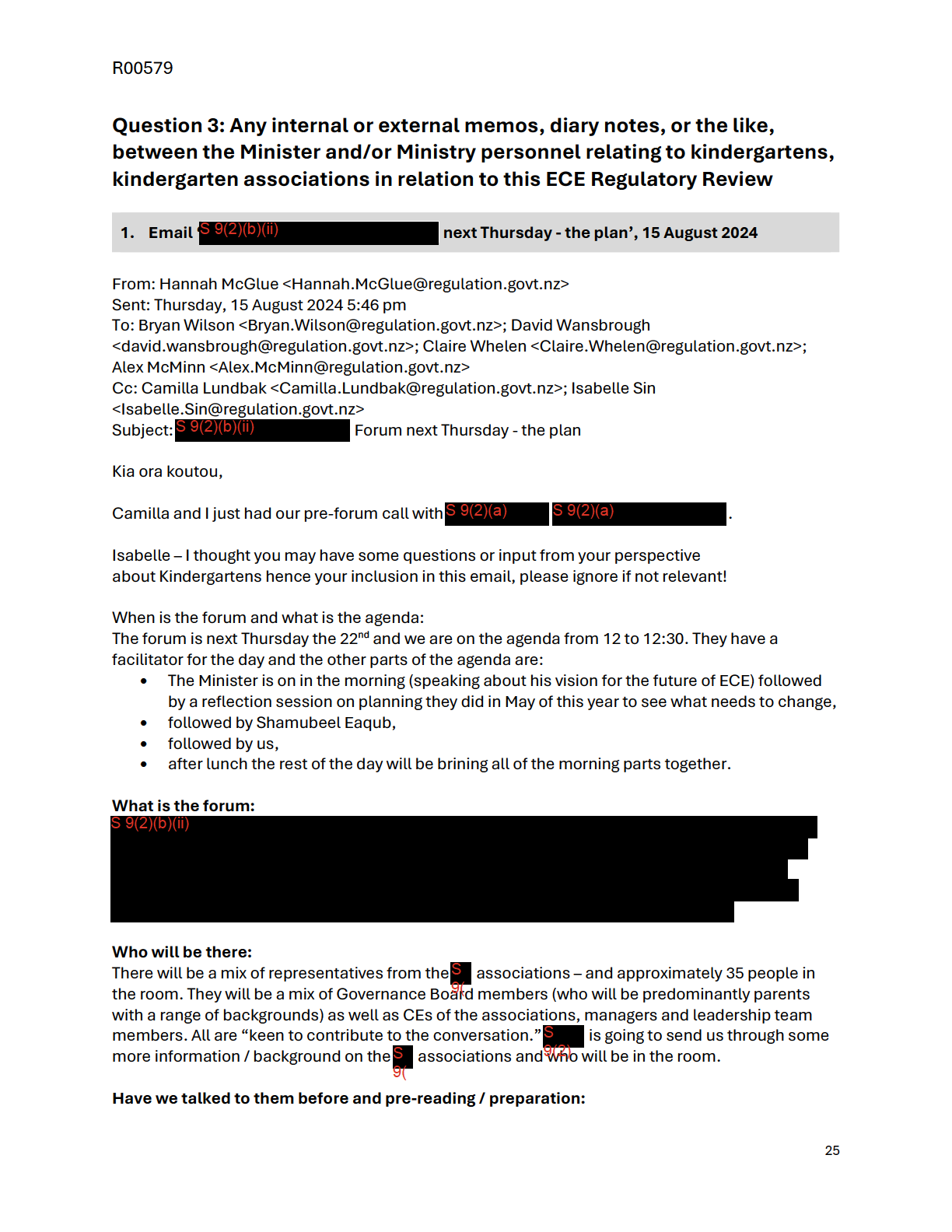
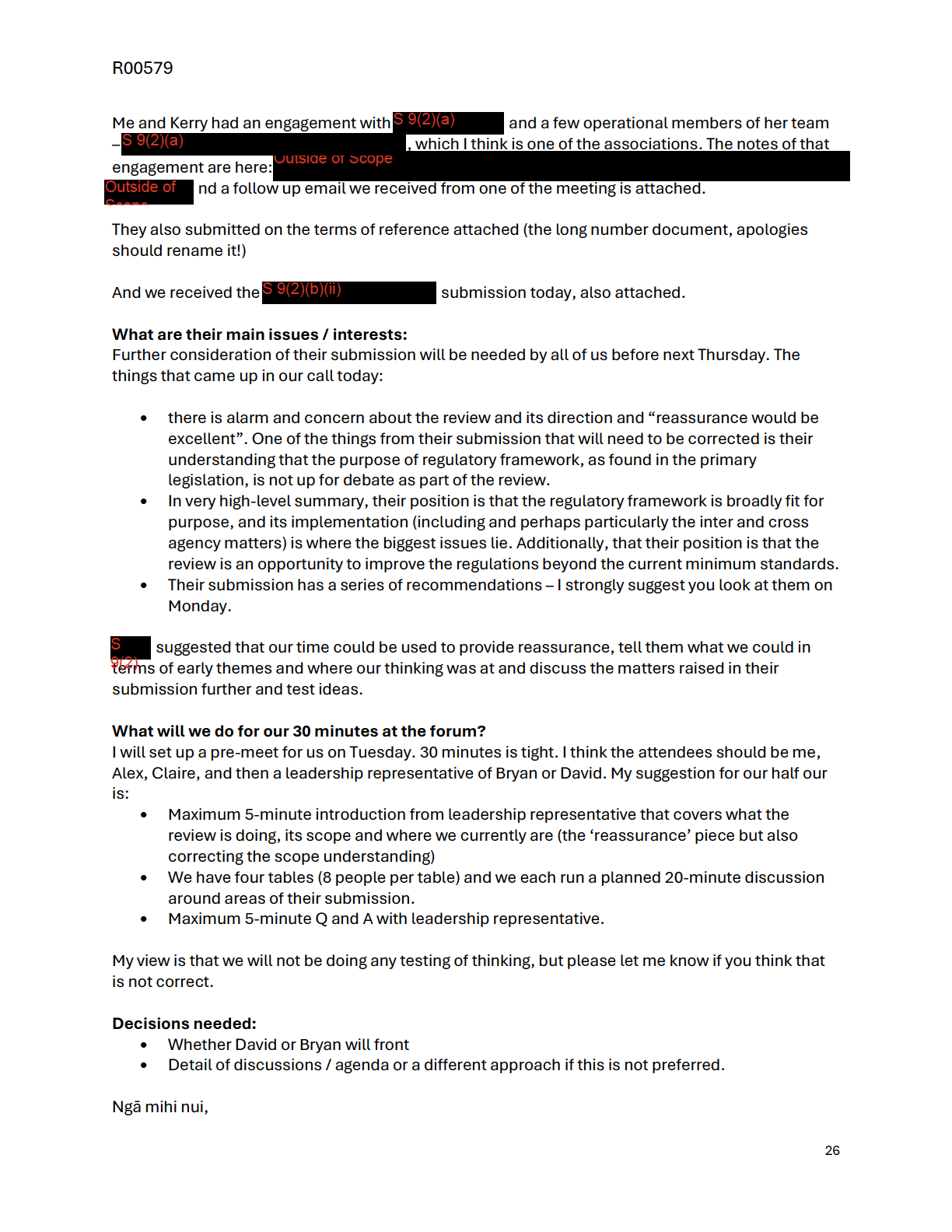

R00579
Hannah McGlue
Early Childhood Education Sector Review
Ministry for Regulation Establishment Unit
waea pūkoro: S 9(2)(a)
| īmēra: [email address]
27
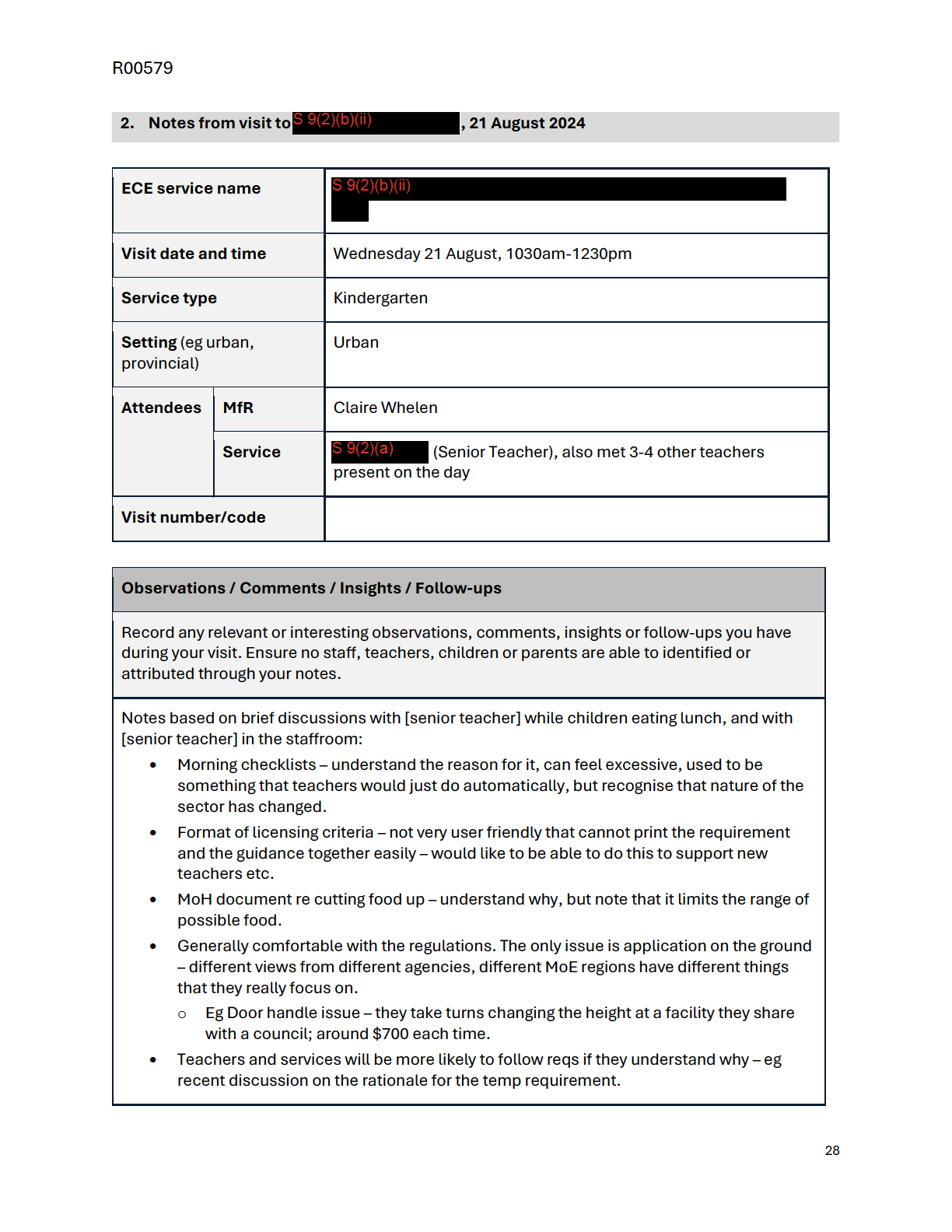
R00579
• Difference in fees between kindergartens and private centres? Comes back to
philosophy – they want children to have access to quality ece , all money they receive
goes back into services (staff + resources), they don’t have to provide returns to
shareholders – that’s the difference.
Observations:
• Large indoor and outdoor space – meant that children could play with others or by
themselves, very calm atmosphere.
• Teachers – all actively extending, scaffolding learning, using multiple languages, very
caring, good relationships with children and each other.
• Mat time – on the floor, just before lunch.
• Kitchen – off to the side with door, but stil very visible.
• Lunch – 1 teacher per table. Children bring food from home.
Organised a follow-up meeting with S 9(2)(b)(ii)
to try and
understand more about how the fees are able to be so much lower in kindergartens than
they are in private centres.
29
